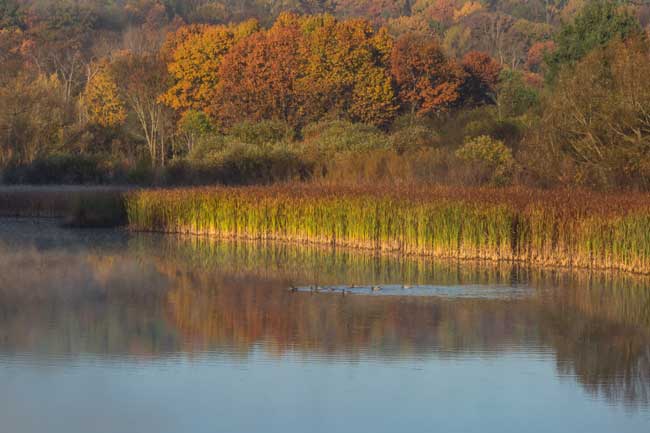 Land protections for clean water on the ballot
Land protections for clean water on the ballot
The Huron River is only as healthy as the lands that feed it. It is the remaining forests and wetlands in the watershed that filter pollution from stormwater runoff, keep streams running cool and constant, soak up flood waters, sequester carbon pollution, and provide endless hours of recreation and wildlife viewing.
Protected natural lands also ensure municipalities and residents have clean water to drink. The City of Ann Arbor draws most of its drinking water from the Huron River. Milford, White Lake, Waterford, Commerce, Lyon, South Lyon, Pinckney, the City of Dexter, Chelsea, and Barton Hills Village all employ municipal wells that rely on clean groundwater, as do about half the watershed’s residents who have their own private wells. According to a 2005 analysis by the Natural Resources Forum, water treatment costs are directly linked to how much of a watershed remains forested. Watersheds with 60% or greater forest coverage had 50% lower water treatment costs than less-forested watersheds.
This November voters in Scio, Northfield, and Dexter townships will have a chance to accelerate watershed protection in their communities. Northfield and Dexter townships have proposals on the ballot for a new property tax millage to fund land protection. Scio Township is proposing a renewal of their current program, originally approved by voters in 2004 and renewed in 2012. Northfield and Dexter townships would join existing programs in Ann Arbor, Webster, and Scio townships, the City of Ann Arbor, and Washtenaw County. Together, with support from HRWC, these programs have protected over 20,000 acres of forests, wetlands, and prairies in the watershed over the last 20 years.
Through its land protection efforts, Ann Arbor’s Greenbelt Program prevents 120,992 pounds of suspended solids (dirt and other particles that wash into waterways with runoff), 4,248 pounds of nitrogen, and 768 pounds of phosphorus from entering the Huron River annually.
Vote for Climate Action and Clean Water!
Choose the policies and people that support robust climate action and land protection:
- Funding for Ann Arbor’s ambitious A2Zero plan to cut carbon emissions and set an example for cities everywhere.
- Land preservation initiatives in Northfield Township, Dexter Township, and Scio Township.
- Candidates that prioritize public health and environmental protection including climate action at all levels of government—from the MI Healthy Climate Plan to local and county-wide plans to cut carbon emissions.
The general election is Tuesday, November 8, 2022. You can vote in person or by mail. Polls are open 7am to 8pm. All registered voters in Michigan can also now vote using what’s called an absentee ballot that you send to your election office by mail. You don’t need an excuse or a reason to request an absentee ballot. Learn more at Michigan’s Voter Information Center and Vote411.org, the League of Women Voters site for nonpartisan information by voter address.
While HRWC does not endorse political candidates, the Michigan League of Conservation Voters is a non-partisan organization with a robust candidate endorsement process with information about specific candidates.
This blog post was originally published in the Huron River Report, Fall 2022.



